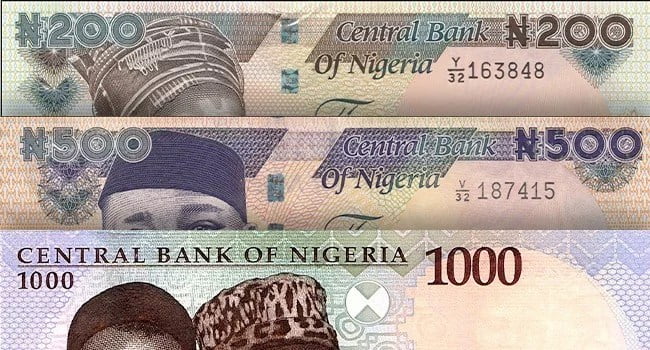Banks in Abuja appear to have started to pay residents of the Federal Capital Territory, Abuja in the old Naira notes, Everyday.ng has gathered.
A bank manager confided to this reporter that the money did not come from the Central Bank.
“We didn’t pay out any cash from my own branch, but I learnt that some may have done. There was no cash from the CBN, but those who did I think got the cash from what was deposited during the period customers paid in the old Naira notes when that confusion arose after the CBN got overwhelmed and allowed banks to collect up to N500,000 from depositors. That is what I heard,” the manager said.
The manager was not aware if a directive has come from the Central Bank of Nigeria (CBN) to the headquarters for payments to be made to depositors or if affected banks are depending on advise from their lawyers to obey the Supreme Court ruling of last Friday.
The apex court had last week ordered that old Naira notes be brought back into circulation until year’s end, rubbishing the Presidential position that the old N500 and N1,000 notes were no longer legal tenders.
President Muhammadu Buhari had only endorsed the use of the old N200 notes alongside the new Naira notes for six weeks in a nationwide broadcast a few days before the Supreme Court overruled him, accusing of dictatorial tendencies.
Since the Supreme Court judgement, the federal government and the CBN have not spoken up on the next line of action, creating confusion in the financial system.
A non-governmental organisation, SERAP, immediately sought clarification from government on how it planned to obey the apex court order.
The Socio-Economic Rights and Accountability Project (SERAP) urged President Muhammadu Buhari to disclose details of the measures his government was taking to obey the Supreme Court decision extending the validity of the old N200, N500, and N1,000 notes, and directing the Central Bank of Nigeria (CBN) to continue to receive the notes from Nigerians.
SERAP urged him “to publicly instruct the CBN to immediately and effectively implement the Supreme Court decision ordering an end to the cash withdrawal limits imposed by banks because such restrictions violate citizens’ right to freely use their property.”
SERAP also urged him “to disclose the measures that your government is taking to direct the CBN to immediately re-circulate the old N200, N500, and N1,000 notes, as ordered by the Supreme Court.”
In the letter dated 4 March, 2023 and signed by SERAP deputy director Kolawole Oluwadare, the organization said, “There is an overriding public interest in disclosing the details of the measures your government and the CBN are taking to effectively and satisfactorily obey the Supreme Court decision.”
According to SERAP, “Disclosing the measures that your government and the CBN are taking to implement the Supreme Court decision would also enable Nigerians to monitor and scrutinize the level of compliance with the decision.”
SERAP said, “The public should not be kept in the dark on what your government and the CBN are doing to implement the decision. Widely publishing the implementation measures would also improve accountability of state officials and public confidence in the rule of law and Nigeria’s democracy.”
The Supreme Court last week extended the validity of the old N200, N500, and N1,000 Naira notes till 31 December, stating that the CBN must continue to receive the notes from Nigerians. The Court held that the president’s directive on the redesign of the new notes without due consultation is invalid.


